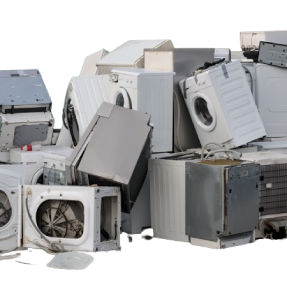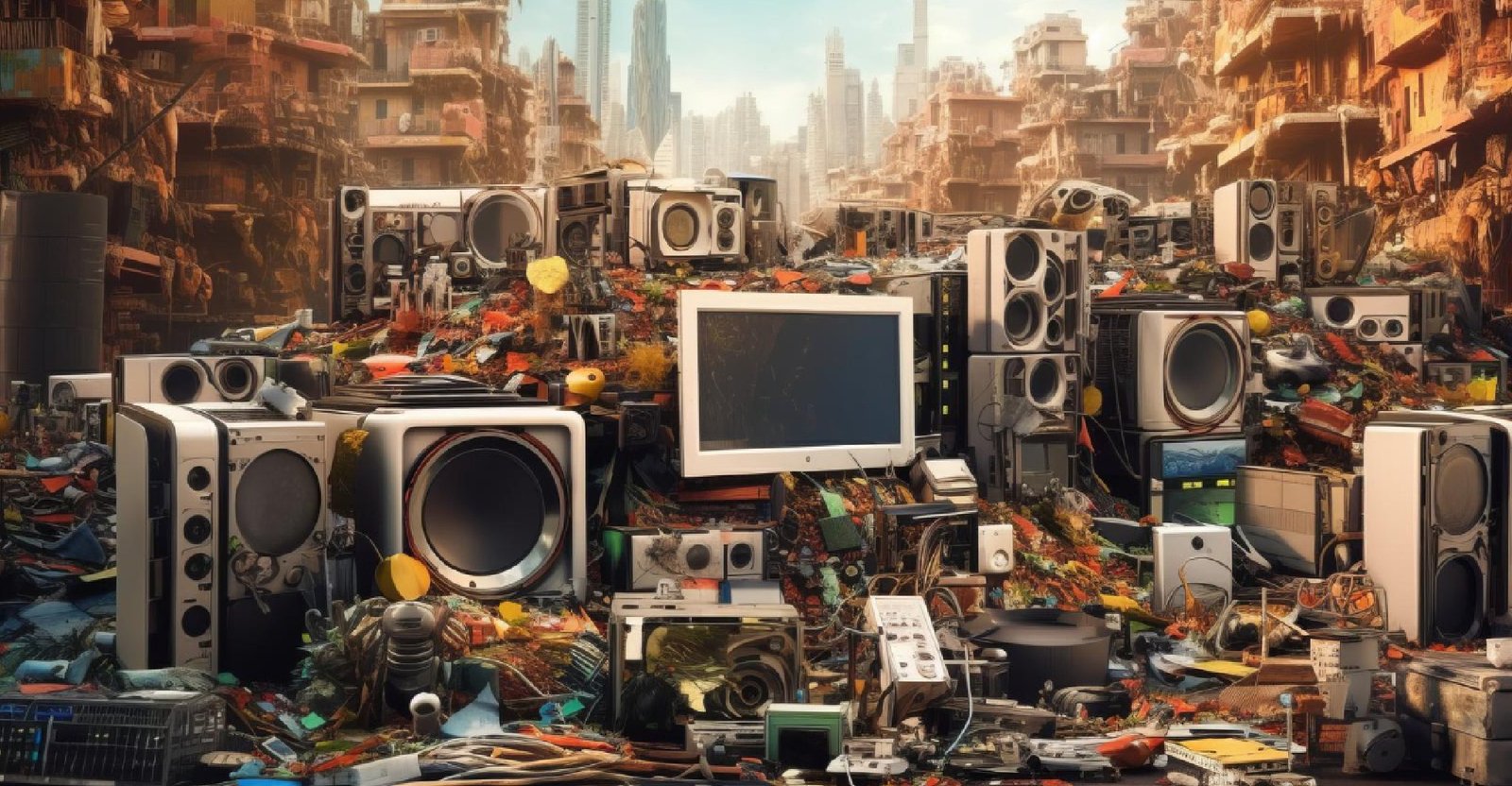Overview
The consumer durables industry is experiencing a pivotal transformation in an era where sustainability is not just a choice but a necessity. Endeavor Recyclers is at the vanguard of this shift, revolutionizing the sector with innovative recycling and material recovery solutions. Our expertise extends to efficiently recycling plastics and metals and extracting precious metals from various consumer goods.
The consumer durables sector, encompassing a wide range of products from electronics to household appliances, plays a significant role in the global economy and environmental health. If not managed sustainably, the lifecycle of these products can lead to substantial environmental challenges, including resource depletion and increased e-waste. Endeavor Recyclers addresses these challenges head-on, focusing on extending the life cycle of materials and promoting a circular economy.
Our approach combines cutting-edge technology with an in-depth understanding of material science, ensuring that every product we handle is transformed from potential waste to valuable resources. This process reduces consumer goods' environmental footprint and contributes to the conservation of natural resources. By recovering metals and plastics, we turn waste into raw materials for new products, embodying the essence of a circular economy.
Furthermore, our commitment to sustainability goes beyond recycling. We are dedicated to fostering responsible consumption and production patterns, aligning our practices with global sustainability goals. Our efforts aim to catalyze change in the consumer durables industry, making it more sustainable, efficient, and environmentally responsible. Endeavor Recyclers is not just recycling materials; we are recycling the future, ensuring that the consumer durables industry thrives in harmony with our planet.
Technology
At Endeavor Recyclers, our technological prowess is the cornerstone of our innovative approach to recycling in the consumer durables sector. We employ a suite of advanced technologies that enable us to recycle plastics and metals efficiently and skillfully extract precious metals from various consumer goods.
Our technology portfolio encompasses sophisticated processes for disassembling and shredding consumer products, ensuring that every recyclable component is effectively extracted. This is followed by a meticulous separation process, where materials such as plastics, ferrous and non-ferrous metals, and precious metals are segregated using state-of-the-art sorting technologies. This separation is critical for ensuring the purity of the recycled materials, which in turn enhances their value and usability in new products.

Our techniques are particularly noteworthy in the realm of precious metal extraction. We utilize hydrometallurgical and pyrometallurgical processes tailored to efficiently recover valuable metals like gold, silver, and palladium. These processes are not only practical but also environmentally friendly, minimizing the use of harmful chemicals and reducing our overall environmental impact.
Our commitment to innovation extends to the continuous improvement and upgrading of our technologies. We invest in research and development to stay ahead of industry trends and to adapt to the evolving needs of the consumer durables sector. This forward-thinking approach ensures that our recycling and extraction methods are not only cutting-edge but also scalable and adaptable to different product types and materials.
By harnessing these advanced technologies, Endeavor Recyclers is redefining the recycling landscape in the consumer durables industry. Our techniques testify to our belief that technology and sustainability can go hand in hand, leading to a more sustainable future.
FAQs
Recycling in the consumer durables industry is pivotal for managing the increasing volume of e-waste and reducing its environmental impact. It allows for the recovery of valuable materials, reducing the need for virgin resource extraction. This process conserves natural resources and significantly reduces energy consumption and greenhouse gas emissions. Furthermore, recycling extends the lifecycle of materials, fostering a circular economy in consumer goods.
Recycling is critical to achieving sustainability, as it minimizes waste and reduces the demand for new resources. It lessens the burden on landfills and helps lower pollution levels, including air and water contamination. By recycling, we also save energy compared to manufacturing products from raw materials. Ultimately, it aids in preserving natural habitats and biodiversity by reducing the need for resource extraction.
Consumer durables are a rich source of recyclable materials, including plastics, metals, Glass, and specific electronic components. Plastics can be transformed into new products, reducing petroleum usage. At the same time, metals are infinitely recyclable without losing their properties. Glass from consumer durables can be recycled in new glass products, contributing to resource efficiency. Even specific electronic components can be recovered and reused, preventing hazardous substances from entering the environment.
Extracting precious metals from consumer goods involves a series of specialized processes. Initially, products are dismantled and shredded to separate different materials. Advanced techniques like chemical processing are then used to extract precious metals such as gold, silver, and palladium. This process recovers valuable resources and prevents the environmental harm caused by improper electronics disposal.
Metal recycling offers numerous environmental benefits, including a significant reduction in energy consumption compared to producing metals from ore. It decreases greenhouse gas emissions, contributing to the fight against climate change. Recycling metals also conserves natural resources and reduces the environmental impact associated with mining activities. Moreover, it prevents metal waste from ending up in landfills, thus reducing soil and water pollution.
Recycling consumer goods is a critical strategy for managing and reducing e-waste. It prevents discarded electronics from ending up in landfills, where they can release toxic substances. Recycling removes valuable materials for reuse, reducing the need to extract new resources. This process also raises awareness about the value of e-waste, encouraging more sustainable consumer behaviour.
Consumers are integral to the recycling process, starting with the responsible disposal of their products. Consumers ensure that materials are directed to appropriate recycling facilities by separating recyclables from general waste. Educating themselves about which products and materials can be recycled also plays a crucial role. Ultimately, consumer participation drives the demand for recycled products, completing the recycling loop.
Technology plays a crucial role in enhancing the efficiency and effectiveness of recycling processes in the consumer durables industry. Advanced sorting technologies enable precise separation of different materials, improving the quality of the recyclables. Innovative processing techniques, such as thermal treatment and chemical extraction, allow for the recovery of a broader range of materials. Furthermore, technology aids in automating and scaling recycling operations, making them more economically viable.
A circular economy is an economic system aimed at eliminating waste and continually reusing resources, a concept highly relevant to consumer durables. It challenges the traditional linear model of ‘make, use, dispose’ and encourages the design of products for longevity, repairability, and recycling. In the context of consumer durables, this means creating products that can be easily disassembled and recycled at the end of their life. Adopting circular economy principles in this industry reduces environmental impact and fosters sustainable consumption patterns.
Yes, recycled materials from consumer goods are both safe and of high quality. They undergo rigorous processing and purification to meet safety and quality standards. These materials are often indistinguishable from those made from virgin resources regarding functionality and appearance. Using recycled materials also encourages innovation in product design, ensuring that quality is maintained or enhanced.
